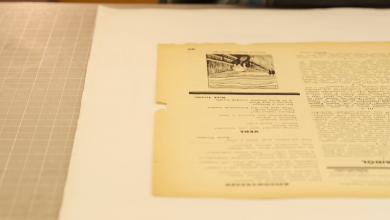12 New Books We Recommend This Week


April is National Poetry Month, so our recommendations this week — drawn largely from our recent poetry-themed issue of the Book Review — are heavy on verse, with new collections from Dana Levin, Roger Reeves, Solmaz Sharif and more. We also recommend books about poetry or poets: a Keats biography, the diaries of Edna St. Vincent Millay, a technical guide (“Rhyme’s Rooms”) in which Brad Leithauser walks readers through the basics of rhyme, meter, stanzas and other formal considerations.
Farther afield, we liked Amy Gajda’s history of the right to privacy, and new memoirs from the “Saturday Night Live” alum Molly Shannon and the venerable cultural critic (and New York Times alum) Margo Jefferson. Happy reading.
Gregory Cowles
Senior Editor, Books
Twitter: @GregoryCowles
HELLO, MOLLY! A Memoir, by Molly Shannon with Sean Wilsey. (Ecco, $27.99.) The former “Saturday Night Live” star’s memoir has plenty of shenanigans — unsurprising given her genius for physical comedy and deadpan inflection. But underneath it all there is bottomless pathos. In 1969, when Shannon was 4 years old, her mother and younger sister died in a car accident. She writes here about how her devastated family managed to go on, and about her persistence on the road to fame. “Parts are as plain and strong as Hemingway, with some internal monologues that are downright Joycean. Really,” our critic Alexandra Jacobs writes. “It’s very sad and very, very funny. Redemptive and uplifting and all those corny words.”
SEEK AND HIDE: The Tangled History of the Right to Privacy, by Amy Gajda. (Viking, $30.) In this wry and fascinating book, Gajda traces the history of the right to privacy and its (understandably fraught) relationship in the United States with the First Amendment. She examines the tension that has persisted over the years in the tug of war between “the right to know” on one side and “the right to be let alone” on the other. Gajda “is a nimble storyteller,” our critic Jennifer Szalai writes. “Even if some of her conclusions are bound to be contentious, she’s an insightful guide to a rich and textured history that gets easily caricatured.”
CONSTRUCTING A NERVOUS SYSTEM: A Memoir, by Margo Jefferson. (Pantheon, $27.) Jefferson’s latest book is a companion to her first memoir, “Negroland,” which won a National Book Critics Circle Award in 2016. The book’s title is a sly description of her project, with “nervous system” referring to the materials — “chosen, imposed, inherited, made up” — that jumble together into an identity. The book is part rumination on the nature of memoir, part traditional autobiography and — always — an engagement with art, including that of Ella Fitzgerald, Josephine Baker and Harriet Beecher Stowe. “This is a book for deep submergence, not quick flipping,” our critic Molly Young writes. “This is appointment reading. Clear the schedule and commit.”
NOW DO YOU KNOW WHERE YOU ARE: Poems, by Dana Levin. (Copper Canyon, paper, $17.) Levin’s new book is about many things — Donald Trump, climate grief, the Covid pandemic — but it’s also the diary of a poet’s painful passage from not writing to writing again: an unguarded literary experiment that freely shares her self-doubts, false starts and dead ends. “If this sounds emotionally risky and artistically gutsy, it is,” Srikanth Reddy writes in his review. “Her narrow road to the interior passes through the Trump presidency into an epiphanic realm where birth resembles death, violence healing, and trauma care.”
RAPTURE AND MELANCHOLY: The Diaries of Edna St. Vincent Millay, edited by Daniel Mark Epstein. (Yale University, $35.) Seven decades after Millay’s death, her diaries paint a picture of artistic triumph, romantic tumult and a descent into addiction. The gaps and silences suggest a woman who cherished privacy and quietude, a woman seeking shelter from her Byronic reputation. “Perhaps her many diary entries about flowers, weeding, pets, the weather and difficult servants are an elaborate deflection — or a respite from being Edna St. Vincent Millay,” Heather Clark writes in her review. “These diaries ought to change our understanding of Millay — not for what they reveal, but for what they withhold.”
RHYME’S ROOMS: The Architecture of Poetry, by Brad Leithauser. (Knopf, $30.) In a guide to poetic techniques that also amounts to a defense of the form, the veteran poet and avowed traditionalist offers chapters on meter, rhyme, stanzas and so forth to explain how verse works, and why we should care. “Leithauser’s approach is essayistic rather than procedural; this book is not a how-to so much as a how-about,” David Orr writes in hs review. “Along the way, we get readings of individual poems and poetic effects that are enjoyable, if sometimes idiosyncratic.”
BEST BARBARIAN: Poems, by Roger Reeves. (Norton, $26.95.) Reeves’s terrific second collection eruditely sets out to unite the Western literary canon with its omissions and oppressions, resurrecting an eclectic cast of characters, from Sappho to James Baldwin, to ask the vital yet unanswerable question: “What disaster will I deliver to my daughter?” “In Reeves’s deft hands,” Sandra Simonds writes in her review, “the peripheral is made central as a way to upend literature’s hierarchies. … What I find most moving in this collection is the way fatherhood frames Reeves’s sense of the future and his reworking of the past. His daughter becomes a generator for paradise, the underworld, utopia and dystopia. What will he leave behind for her?”
KEATS: A Brief Life in Nine Poems and One Epitaph, by Lucasta Miller. (Knopf, $32.50.) By structuring her ode to the great Romantic poet around nine specific poems (and an epitaph), and allowing herself a recurring, candid first person, Miller evokes the shifting, various genius of her subject without dumbing-down, while avoiding the conventions of academic biography. “She helps a reader perceive the actual, living, 25-year-old man,” Robert Pinsky writes in his review. “Miller’s brief, conversational (at moments chatty) book, with its organization based on the poet’s writing, making the poems the starting point, might be a fitting document, among many thousands, for that imaginary communication between John Keats and us, his future readers.”
FLIGHT AND METAMORPHOSIS: Poems, by Nelly Sachs. Translated by Joshua Weiner. (Farrar, Straus & Giroux, $30.) Sachs, a German Jew who fled the Nazis and went on to win the 1966 Nobel Prize in Literature, is known as a Holocaust poet, but this new translation of a postwar collection shows that her later work was also full of mystery and depth. “Simultaneously hermetic and porous, disconnected from explicit geographical, temporal and narrative context, these poems search instead of reporting,” Daisy Fried writes in her review. “These are visions without revelation, prophecies that squint. This will disorient readers accustomed to Anglo-American lyric epiphany — but that’s the point, and a good reason to read Sachs.”
CANOPY, by Linda Gregerson. (Ecco, cloth, $25.99; paper, $16.99.) In her elegiac seventh collection, the careful, careworn, learned Michigan poet tries patiently and concisely to support our aging bodies, our battered ecosystems and our traditions of memorable speech, along with her own Midwestern immigrant heritage. “Other elegiac poets, other poets of ecocatastrophe, revel in sensory detail, or else pursue scrambled language for chaotic times.,” Stephanie Burt writes in her review. “Gregerson instead sets up clean arguments, even syllogisms, in complex sentences designed to fasten us to her considered conclusions. She is a poet of wisdom, of maturity, of memorable advice, looking to history and sometimes finding help there.”
VENICE, by Ange Mlinko. (Farrar, Straus & Giroux, $26.) Mlinko’s poems, in which quotidian events generate nightmarish overtones haunted by political and environmental anxiety, are formal and highly polished — but also wild, energetic, alive and wantonly catholic in their allusiveness. “In Mlinko’s universe, small, modest things frequently symbolize immensities, and our locally aimed, often casually delivered remarks — We don’t have much time, there’s still damage being done — often turn out to have application well beyond their intended domains,” Troy Jollimore writes in his review. “Whether the subject is love, national politics or European vacations, the end result seems the same: Reality tends to defeat our aspirations, leaving us only with the memories of the pure objects we desired.”
CUSTOMS, by Solmaz Sharif. (Graywolf, paper, $16.) Sharif’s second poetry collection brings her anthropological eye to reflections on freedom, consumerism and loyalty that are at once witty and incisive. The austerity of these poems wields great power. “Line breaks speak volumes in Sharif’s work, and her ample use of white space throughout ‘Customs’ encourages the reader to pause; to be intentional when reading and digesting each line,” Jessica Gigot writes, reviewing the book alongside three other new poetry collections. “As she masterfully traverses the landscape of exile and all its complicated grief, Sharif manages, with conviction and consistency, to make the reader feel welcome.”




